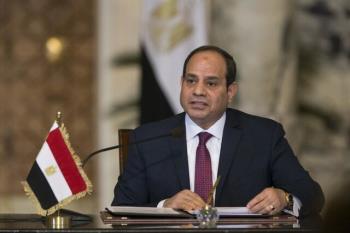Alwaght- Iraq has been struggling against an increase in spates of violence as well as attempts to establish a so-called Islamic caliphate by ISIS terrorists. In 2016, the Iraqi army launched major offensives to retake large swathes of territory and key cities in a bid to uproot ISIS and its followers from the country. Nonetheless, the violence continued to claim the lives of innocent civilians. The following is a brief list of some incidents that stand out this year in the West Asian Arab Country.
January
A total of 849 Iraqis were killed and another 1,450 were injured in acts of terrorism, violence and armed conflict in Iraq in January 2016, according to casualty figures released by the United Nations Assistance Mission for Iraq (UNAMI).
February
On 2 February, the siege of Fallujah began where Iraqi forces surrounded the city in the western Anbar province after they recaptured Ramadi. ISIS terrorists were prevented from leaving the city where was regarded as the second most important stronghold for the terrorist group after Mosul.
Later that month, security forces began preparations for the Hit offensive which would pave the way for the liberation of the district.
March
At least 60 people were killed in a suicide bombing which was perpetrated by an ISIS suicide bomber in Hillah. On 6 March, a suicide bomber rammed his explosives-laden truck into a security checkpoint south of Baghdad.
It was a critical time of the year because that was when the Mosul offensive was launched (third one). Thousands of Iraqi troops were involved in the operation as weeks of preparation preceded the assault.
On 27 March, Iraqi Yazdis and tribal fighters seized an area between Sinjar and the Syrian border, cutting off a key ISSI supply line.
April
A string of suicide attacks continued to rip through Iraq, further raising the country’s death toll from violence and terrorism.
May
ISIS claimed responsibility for an attack in the south. A twin suicide bombing killed at least 33 people and wounded 75 others in the city of Samawah.
On 18 May, Iraqi Prime Minister Haidar al-Abadi announced that the army and Popular Mobilization Forces liberated the strategic town of Rutbah, Anbar.
Four days later, Operation Breaking Terrorism kicked off. The operation, also known as the Battle of Fallujah (2016) or Fallujah offensive, was launched to capture the city of Fallujah, west of the capital Baghdad.
June
On 26 June, the city of Fallujah was recaptured by Iraqi forces, marking another defeat on ISIS. A day later, the Iraqi army entered the outskirts of the city to comb the remaining pocket of ISIS militants.
July
On the 24th of this month, campaigners from the Minority Rights Group warned that many of the country’s minorities are on the verge of disappearance after 13 years of war. These minorities include the Yazidi, Turkmen, Shabak, Christians and Kaka'i who have been disproportionately affected by the recent violence, according to the report. Tens of thousands have been murdered, maimed or abducted and many women and girls forced into marriage or sexual enslavement.
August
On 25 August, the army liberated the town of Qayyarah, located in southern Nineveh Governorate. However, as ISIS terrorits retreated, they set fire to oil wells and a sulfur plant in the area, resulting in severe consequences. On the other hand, the liberation of the town have played a key role in allowing a future Mosul offensive.
September
The Iraqi army continued to retake swathes of territory from the foreign-backed terrorist organization with the support of Popular Mobilization Forces. On 22 September, a large-scale offensive resulted in the liberation of the key town of al-Shirqat in eastern Anbar in the Salahuddine Province. According to the Iraqi Army's Central Command, their forces also liberated the villages Mashili, Jad'an Al-Shabali, Al-Jamilah Al-Jadidah, Sweidan, and 'Itha near Al-Shirqat.
October
Furthermore, Iraqi forces continued anti-terrorism operations throughout the month of October. For example, Iraqi Air Forces bombing killed at least 40 ISIS terrorists near Anbar in just one day early in the month. Airstrike were carried periodically while clashes persisted in the country.
November
According to a UN report, the casualty figures were staggering in November, with civilians accounting for a significant number of the victims. The United Nations Assistance Mission for Iraq (UNAMI)’s latest statistics showed that 2,885 Iraqis were killed and 1,380 injured in acts of terrorism, violence, and armed conflict.
Notably, this month was marked by the Arbaeen, the 40th day of mourning for the martyrdom of Imam Hussein, a grandson of the Prophet Mohammad, in the 7th century AD.
In a related incident, a suicide truck bomb killed close to 100 people, most of whom were Iranian pilgrims in the city of Hilla as they were en route back from the city of Karbala.
December
The Battle for Mosul continued with sources saying that the Iraqi army now has control over %44 of Nineveh Province. A spokesperson of the Iraqi Joint Operations Command, Yahya Rasoul, has reportedly said that the army Counter-terrorism Service controls 40 districts in the eastern part of Mosul
Meanwhile, Human Rights Watch has accused ISIS of indiscriminately attacking civilian areas in eastern Mosul with mortar rounds and explosives as well as deliberately shooting fleeing residents.
This year, like previous ones, has been bloody and volatile. However, for the people of Iraq who have been suffering for a long time, the victories scored by the Iraqi army spell out the hope that their country would one day be safe in spite of today’s situation.



























